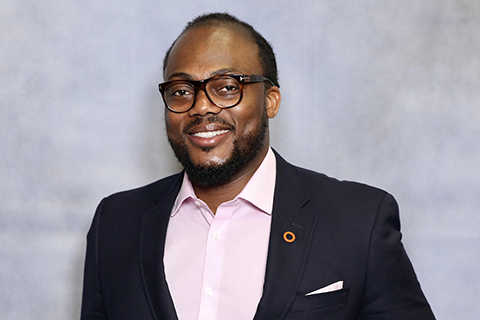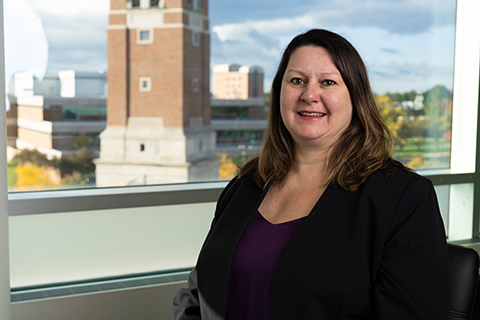OU to share in $5 million NSF award to support low-income students pursuing degrees in STEM-related fields

In collaboration with five academic institutions in the state of Alabama, Oakland University in Rochester, Mich. has been awarded $5 million by the National Science Foundation (NSF) in support of a five-year project that will provide scholarships and academic, social, and professional development opportunities to high-achieving, low-income students with demonstrated financial need who are pursuing degrees and careers in science, technology, engineering and mathematics (STEM) related fields.
OU’s share of the total award is approximately $1.1 million, according to Dr. Martha Escobar, a professor of psychology who will serve as the principal investigator for Oakland University on the project, entitled “Advancing STEM Workforce Readiness of Interdisciplinary Scholars for Excellence Using a Mentored Community Approach to Promote Belonging and Professional Identity.”

Dr. Richard Olawoyin
Dr. Richard Olawoyin, professor of Industrial and Systems Engineering, and Dr. Brandy Randall, dean of the Graduate School at OU, will serve as the co-principal investigators on the project.
“This project is part of the S-STEM (Scholarships in Science, Technology, Engineering and Mathematics) mechanism of theNSF,” Escobar said. “The S-STEM program is intended to support students who are from low-income backgrounds but have high academic potential, with the idea that sometimes income can be a problem when it comes to accessing opportunities to really shine in STEM.”

Dr. Brandy Randall
Over its five-year duration, the project will fund scholarships for 72 unique, full-time students who are pursuing associate’s, bachelor’s, and master’s degrees associated with STEM related fields — including physics, chemistry, mathematics, computer science, mechanical engineering, software engineering, and electrical engineering — at any of the six collaborating institutions, including Tuskegee University (Ala.), Auburn University (Ala.), Auburn University Montgomery (Ala.), Oakland University (Mich.), Southern Union State Community College (Ala.), and Troy University (Ala.).
“At Oakland University, our goal will be to provide scholarships to at least nine undergraduate and six graduate students who are academically talented with demonstrated financial need,” Escobar said. “Undergraduate students will be able to receive a maximum of $14,500 per year for up to four years, and graduate students will be eligible for up to a maximum of $20,000 per year for up to two years.”
Over the five years of the program, cohorts of students will engage in a peer mentoring ecosystem and work locally and remotely with the students at the other institutions to develop a technological product using cutting-edge technologies, including digital twin technology generously donated by the Siemens Corporation.
“’Twinning’ is a virtual intervention that allows people in different locations to work on a project together; they can develop a model of something and manipulate it virtually,” Escobar said. “For example, the students from Oakland University will be working with the students at a different site in Alabama. They will design the prototype of a product, and they will develop it in the ‘twinning’ environment. Our goal is for them to actually create a physical prototype so they can integrate everything that they have learned in their respective fields into developing a product.”
The students will also have the opportunity to work with a variety of mentors, including industry leaders, faculty, and graduate students. In addition, they will have opportunities to visit the partner institutions to develop their research skills.
“One of the things that we will implement is that students in the program will be able to apply for funds to go and visit with a professor (in Alabama) for a few days and hopefully make some connections that will lead to them pursuing their master’s degree or having some sort of post-baccalaureate opportunity in that professor’s lab and gain experience working in a different environment.”
Likewise, students from any of the five academic institutions in Alabama will also be able to use those same funds to visit Oakland University to learn more about opportunities there.
Escobar said she hopes to begin recruiting students for the program in the winter semester. To be eligible, undergraduate students must be Pell Grant eligible, and graduate students must have a student aid index of 3,000 or below.
“We are very excited to be able to work with Oakland students and faculty to implement the program,” she said.

 September 19, 2024
September 19, 2024

